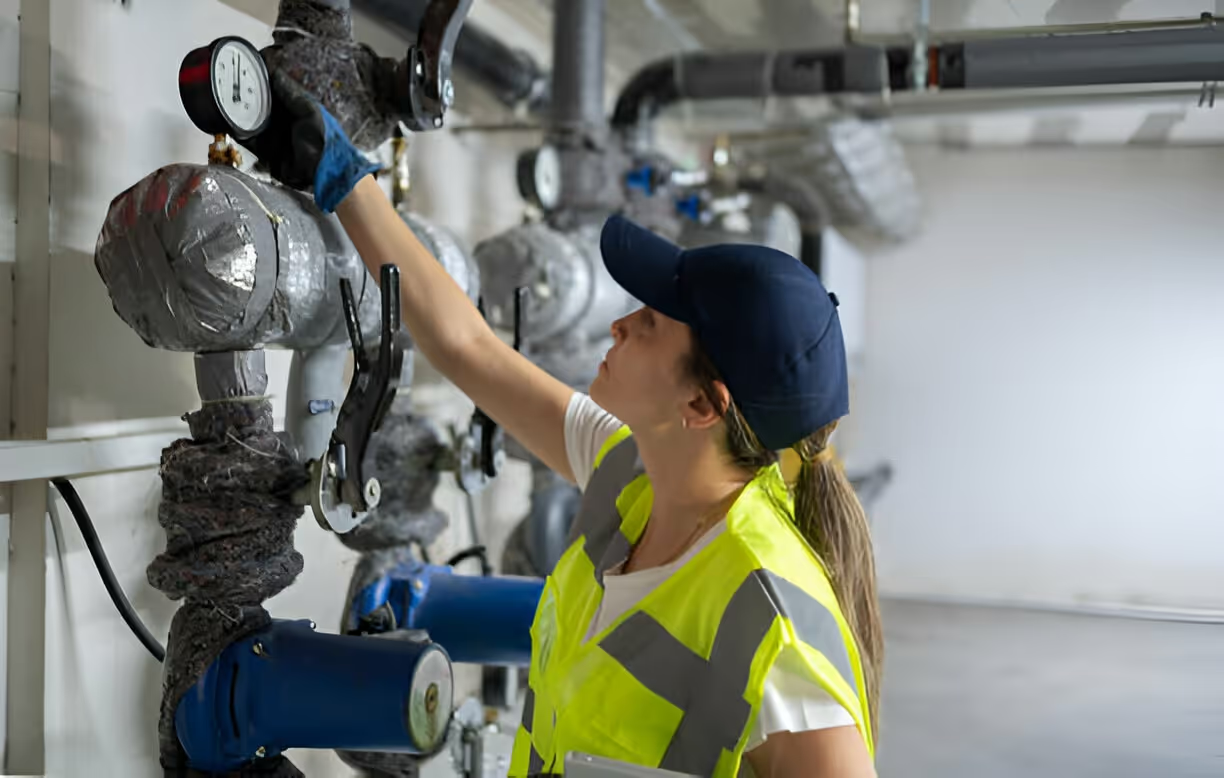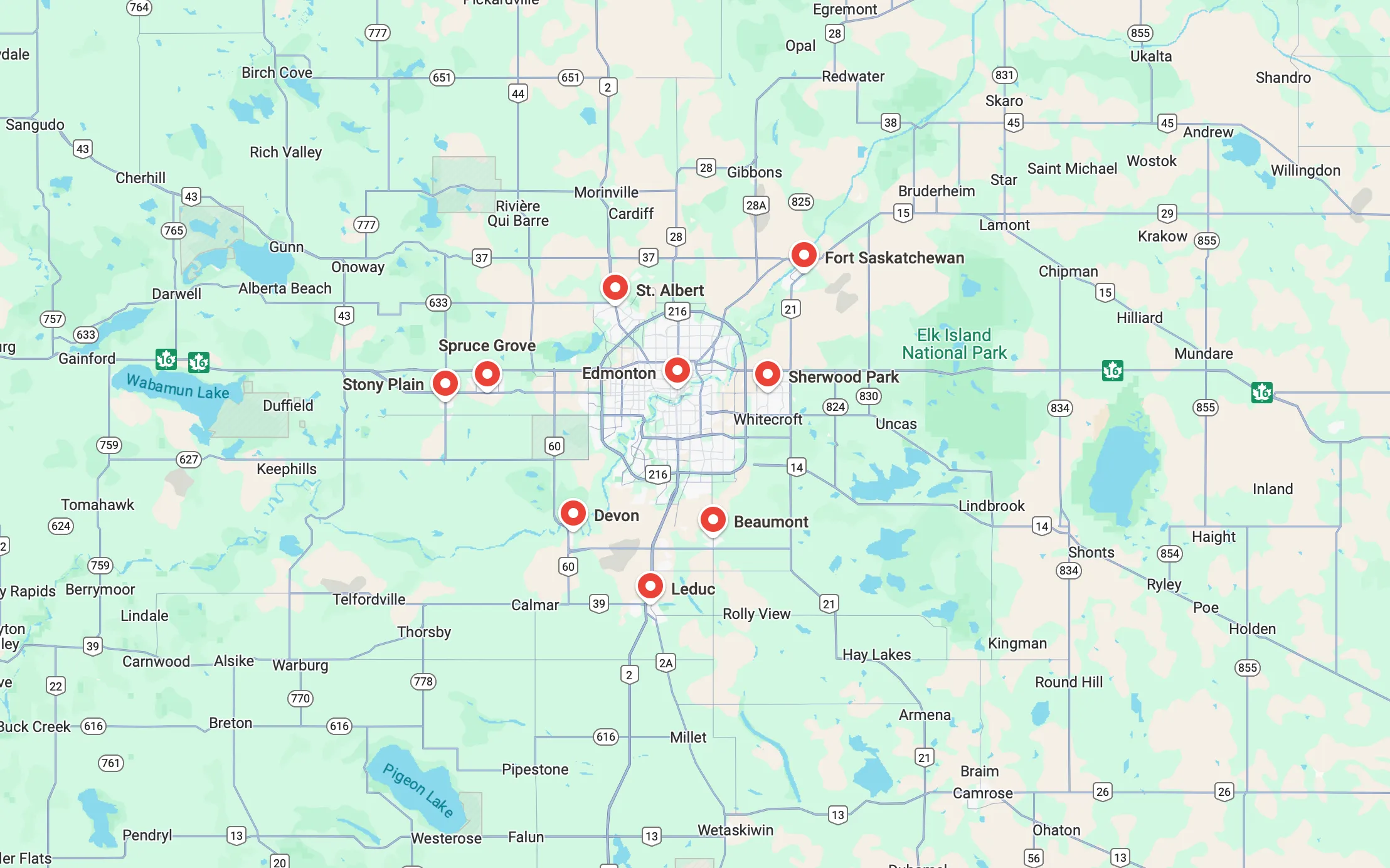Heating Installation in Devon, AB
A comprehensive heating installation process for Devon, AB homes, from initial consultation through post-installation support. It explains why professional sizing, ductwork, and code-compliant venting matter in cold climates and highlights common reasons homeowners upgrade their systems. The step-by-step approach covers site assessment, equipment selection, duct design, commissioning, and homeowner orientation, plus maintenance recommendations. By emphasizing accurate sizing, quality installation, and thorough commissioning, the guide demonstrates how a modern, efficient heating system delivers comfort, safety, and long-term energy savings.

Heating Installation in Devon, AB
A correctly designed and installed heating system is one of the most important investments for homes in Devon, AB. With long, cold winters and wide temperature swings, an appropriately sized, code-compliant system keeps your living spaces comfortable, reduces energy waste, and protects indoor air quality. This page explains the full new heating system installation process - from the initial consultation to post-installation support - and highlights the common issues that proper installation prevents in Devon homes.
Why professional heating installation matters in Devon, AB
Devon experiences extended sub-zero temperatures and periodic freeze-thaw cycles that place extra demand on heating equipment. Systems that are improperly sized, poorly ducted, or inadequately commissioned can lead to cold spots, high energy bills, premature equipment failure, and safety risks like carbon monoxide. A heating installation tailored to local climate and building characteristics ensures reliable warmth, efficiency, and compliance with provincial and municipal codes.
Common reasons homeowners in Devon choose a new heating system
- Aging furnace or boiler with frequent breakdowns
- High heating bills despite recent repairs
- Poor comfort: uneven temperatures, noisy operation, or frequent cycling
- New construction or major renovation requiring updated HVAC design
- Desire to switch to a high-efficiency furnace, cold-climate heat pump, or hybrid system for lower operating costs
- Need to replace unsafe equipment or meet updated building code requirements
The heating installation process for Devon homes
A thorough installation follows clear, proven steps to deliver predictable comfort and long-term performance. Typical phases include:
Initial consultation and site assessment
- On-site survey of the home, mechanical room, and duct layout
- Review of existing equipment, fuel source (natural gas, propane, electric), and venting options
- Discussion of comfort goals, budget, and efficiency preferences
- Preliminary recommendations for system type and capacity
Equipment selection and accurate sizing
- Heating load calculation (Manual J or equivalent) to size the system for the actual home, not just square footage
- Comparison of equipment types: high-efficiency condensing furnaces, gas boilers, electric furnaces, cold-climate air-source heat pumps, and dual-fuel systems
- Consideration of efficiency ratings (AFUE, HSPF, SEER) and long-term operating costs in Devon’s climate
- Selection of compatible controls and thermostats for zoning or smart scheduling
Ductwork and venting considerations
- Inspection for leaks, undersized runs, and missing return paths; recommendations for repairs or redesign
- Proper sizing and sealing of supply and return ducts to maintain airflow and system efficiency
- Venting plan for combustion appliances, including sealed combustion where required and correct termination for Alberta conditions
- Insulation of ducts in unconditioned spaces to prevent heat loss and freeze risk
Code-compliant installation procedures
- Installation per provincial and local building codes and manufacturer specifications
- Proper gas piping, electrical connections, condensate drainage, and vent clearances
- Combustion safety measures: carbon monoxide prevention, fresh-air intake, and backdraft testing
- Permit coordination and inspection readiness
Commissioning and system testing
- Start-up checks: gas pressure, blower operation, burner combustion analysis for furnaces/boilers
- Airflow balancing and static pressure measurements for ducted systems
- Refrigerant charge verification and heat pump performance testing for cold-climate units
- Thermostat calibration and verification of zone controls or dampers
Homeowner orientation and documentation
- Walk-through of system operation, filters, and maintenance needs
- Explanation of thermostat settings, preferred schedules for winter, and emergency shutoff procedures
- Delivery of warranty paperwork, equipment manuals, and commissioning records
Post-installation support
- Warranty and service options, recommended maintenance schedule, and seasonal tune-ups to protect performance
- Troubleshooting guidance for common first-season adjustments and how the system will react to extreme cold
- Recommendations for complementary upgrades such as insulation or ventilation improvements to maximize savings
Common heating installation issues in Devon and how proper installation prevents them
- Undersized equipment: leads to constant operation and inability to maintain temperature during extreme cold. Load calculations prevent this.
- Oversized equipment: short-cycling increases wear and reduces humidity control. Correct sizing avoids short cycles.
- Leaky or improperly sized ductwork: causes uneven rooms and high energy use. Sealing and right-sizing restore balanced airflow.
- Poor venting or combustion air supply: risks safety and efficiency. Code-compliant venting and sealed combustion address this.
- Lack of commissioning: systems that are not tuned perform poorly. Comprehensive start-up testing ensures intended performance.
Benefits of a properly installed heating system in Devon homes
- Consistent comfort across rooms, even during prolonged cold snaps
- Lower heating bills through correct sizing and high-efficiency equipment choice
- Improved indoor air quality and reduced drafts with properly balanced ducts and filtration
- Enhanced safety through correct combustion setup and carbon monoxide controls
- Longer equipment life and fewer emergency repairs with quality installation and commissioning
- Compliance with local code requirements and smoother municipal inspections for renovations or new builds
Maintenance tips after installation
- Replace or clean filters monthly during heavy use months to protect airflow and efficiency
- Schedule an annual tune-up before winter: burner cleaning, combustion analysis, blower lubrication, and safety checks
- Keep vents, returns, and outdoor unit areas clear of snow, debris, and stored items to maintain airflow and prevent freeze damage
- Monitor energy use and indoor comfort; report unusual noises, odors, or cycling to your service provider promptly
- Consider sealing and insulating ductwork in unheated crawl spaces or attics to reduce heat loss
A new heating system installed to recognized standards and tailored for Devon’s climate provides dependable comfort, safety, and efficiency. Proper sizing, ductwork attention, code-compliant venting, and thorough commissioning are the elements that separate a short-term fix from a long-term solution for your home.
Customer Testimonials
Hear from satisfied customers who trust us for reliable HVAC and plumbing service across Edmonton
















Customer Testimonials
Hear from satisfied customers who trust us for reliable HVAC and plumbing service across Wichita.
Service Areas


